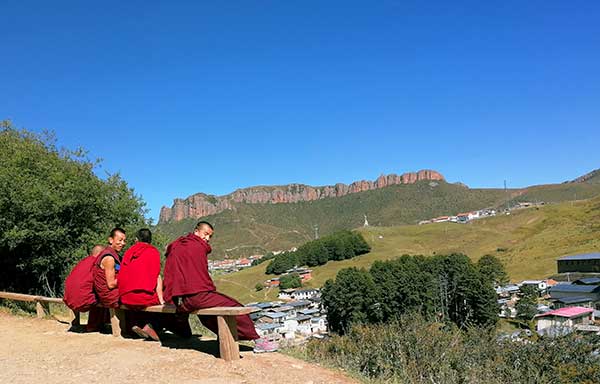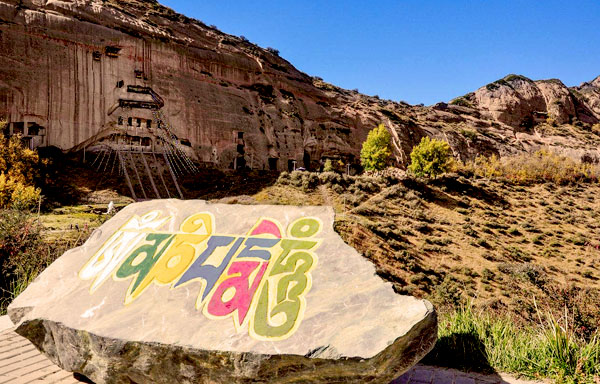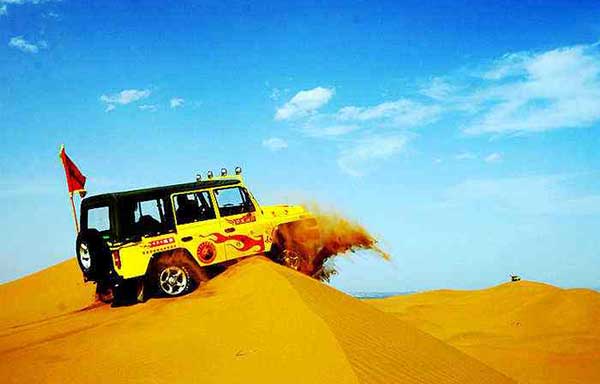- By admin
- In TravelEssentials
- 2015-03-07
Health FAQ
Traveling to high altitude areas
Visitors tour high altitude regions like Tibet often experience altitude sickness, which is caused by the low atmospheric pressure and thin air. Symptoms of altitude sickness are: nausea and dizziness, loss of appetite, shortness of breath, headache, excessive thirst, nervousness, rapid heart beat, nose bleed, general feeling of malaise, disturbed sleep and muscle pain.
Altitude sickness can occur in some people as low as 8,000 feet, but serious symptoms do not usually occur until over 12,000 feet.
It is difficult to determine who may be affected by altitude sickness since there are no specific factors such as age, sex, or physical condition that correlate with susceptibility. Some people get it and some people don't because some people are more susceptible than others.
Do not overexert yourself for the first 24 hours after arriving at a high altitude area. Give your body time to adjust or acclimatize. Keep in mind that different people will acclimatize at different rates. Stay properly hydrated. Acclimatization is often accompanied by fluid loss, so you need to drink lots of fluids to remain properly hydrated (at least four to six liters per day). Light activity during the day is better than sleeping because respiration decreases during sleep, exacerbating altitude sickness symptoms.
Avoid tobacco, alcohol and other depressant drugs including, barbiturates, tranquillizers, sleeping pills and opiates such as dihydrocodeine. Eat a high calorie diet.
Avoiding fatigue
Might feel tired after a trans-continental flight or a walk through the landmark historical monuments on China tour? Following useful travel tips as follows and exercising a little bit can help you to feel better-relaxed
Tips to remove tiredness on China tour
Stretches
1. Shoulders: cross your fingers and rise up with palm upward, stretch your body backward ten times slowly, then quickly.
2. Chest: bend you arms, put arms in front of chest vertically, lower your head, then extend arms forward and backward, raise head and stick out chest at the same time. Do it 10 times.
3. Body: put one hand on waist, raise other hand up, turn upper body to the side, pump hand forcibly upward 5 times, each time for 1~2 seconds, then other side.
4. Waist and abdomen: hold head in hands, bend you body, then stretch upper body backward. Try to keep body straight. Do it slowly 5 times, each time for 3~4 seconds.
5. Legs: pull knee against chest, then stretch both legs at one time and on tiptoe 10 times, each time for 1~2 seconds.
Exercise
1. These exercises can be done on a bus, boat, train or plane:
2. Press your fingertips together.
3. Make a fist with your left hand. With the right hand hold the left wrist tightly, push forcibly against each other. Then change hands.
4. Put palms together and push for 5 seconds.
5. Make both hands into tight fists.
6. Hold you breath for 5 seconds.
7. Set your teeth.
8. Open your mouth widely and shout silently.
9. Hold your chin with two fists, and press chin downward forcibly.
10. Raise face with right hand, lean face against right hand forcibly, alternate with left hand
11. Put both hands with palms against forehead. Push head forward while hands push backward.
Staying healthy
As travelers, it is imperative to stay healthy on China tour when you do the sightseeing, try local cuisines and participate in some strenuous activities. Here some of useful travel tips from our previous travelers to share with.
Tips to stay healthy on China tour
1. Take the following health information with you on your trip
Insurance company's name and address
Trip insurance contact information
Contact person in case of emergency
A copy of your eyeglass prescription
A list of current medications with their generic names. Brand names can vary in foreign countries A list of any known food or drug allergies
A list of immunizations with their dates
A basic description of your past and present medical condition, including past hospitalizations and any current problems Know your blood type
2. Protect yourself from the weather
The weather is very changeable in spring and autumn. Layer clothing so if you become too warm or too cold layers can be added or taken off. Take an umbrella if it looks like rain. Avoid staying out in the wind.
3. Get enough sleep
Don’t become over-tired. Sleeping 6-8 hours a night will help you keep up a rigorous schedule.
4. Pay attention to food hygiene
Eat plenty of fruits and vegetables. Fruits should be washed. Oranges and Bananas that can be easily peeled are a good choice. Avoid raw foods. Drink only bottled water or commercially packaged soft drinks. Have your meals in the hotel restaurant where you stay as much possible. If you eat out, choose a good, clean restaurant. In the most remote areas, brush your teeth with bottled water.
Medicine
In some areas of China, medicines and sanitary items are not readily available. Traveling with medicine on China tours is really essential. In order to stay health, before leaving on China tours, you should:
1. talk to the doctor and discuss the medication you need to bring.
2. carry a letter from the doctor indicating what the medicine is, how much you will be taking, and stating that it is for your own personal use.
3. ask for a duplicate supply of all essential prescription medicines and carry these in your carry-on bag.
4. leave the medicine in its original packaging with clear label with your name and dosage instructions.
5. get a letter from the doctor and explain why you need to carry such quantities if you intend to travel with large quantities of medicine.
6. pack needles and syringes that are sealed and sterile if you have to inject your medication with your own preferable ones.
Physical check-up
Check with your doctor for suggestions of how you can stay healthy on a China tour is recommended. China is really safe place to travel. But it is always better to get well-prepared. Advise your doctor what areas of China you will visit and get the advice of immunizations and medications. Most of China tours are not strenuous, but some consist of quite much walking and climbing; some adventures to Tibet (high altitude areas) require quite good physical conditions. Check with your doctor and be advised if you can take it. Some of the prescription medications are hard to find in the pharmacies in China. Check with your doctor and make sure you bring enough to last well longer than the duration of a China tour.
Related destinations
Why Choose Us?
We are the top Silk Road tour operator based in Dunhuang, China. We focus on providing well designed Silk Road China Tours with resonable price and thoughtful service.
- Easy & carefree booking
- The best value
- Great travel experience
- Locally operated
Hot Tours
-

6 days Gansu tour to Binglingsi, Xiahe and Langmusi
Tour type : Private tour Price : from *** Destinations : Lanzhou - linxia - Xiahe - Langmusi - Hezuo - Lanzhou -

12 Days Gansu Highlights Tour
Tour type : Private tour Price : from *** Destinations : Xian – Tianshui – Lanzhou – Xiahe – Langmusi – Hezuo – Zhangye – Jiayuguan - Dunhuang -

10 Days Silk Road Classic Tour
Tour type : Private tour Price : from *** Destinations : Xian - Zhangye - Jiayuguan - Dunhuang - Turpan - Urumqi -

5 Days Zhangye - Alxa youqi Highlights Tour
Tour type : Private Tour Price : from *** Destinations : Zhangye - Alax youqi - Zhangye

